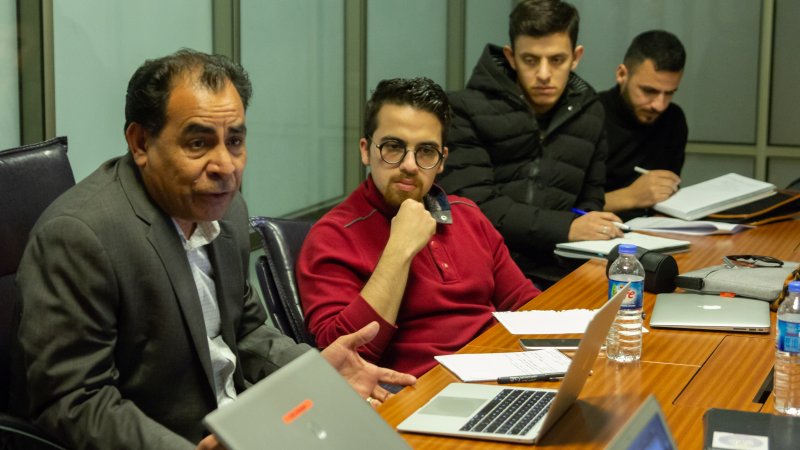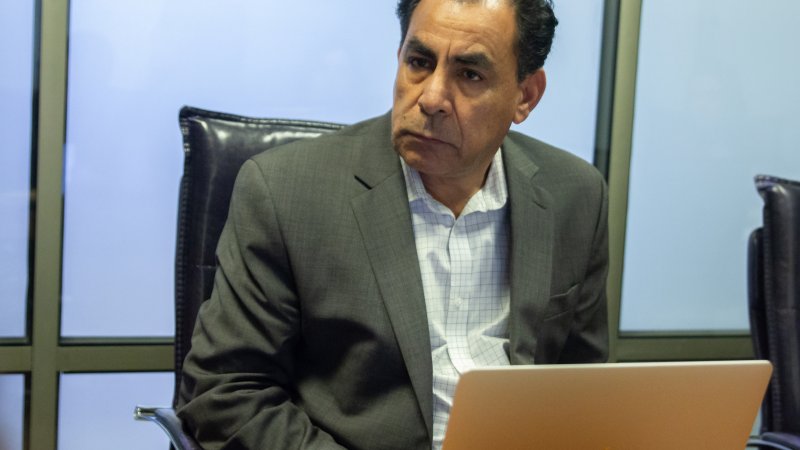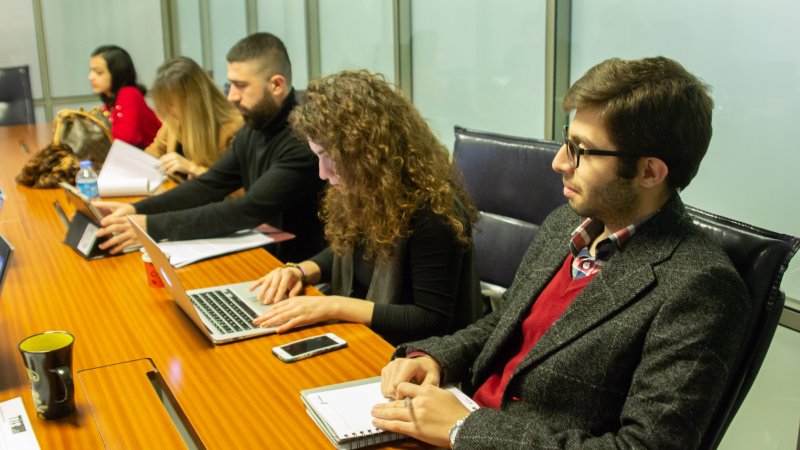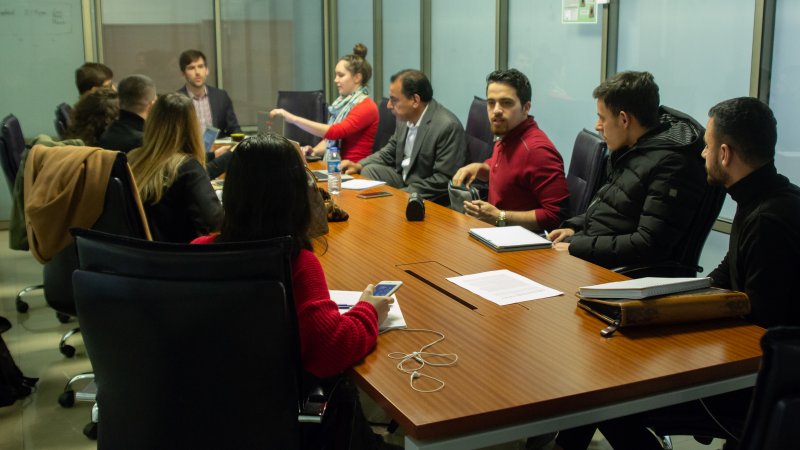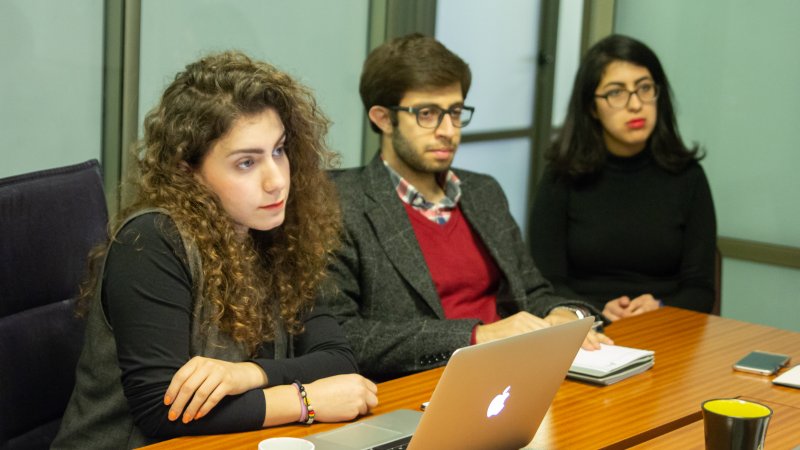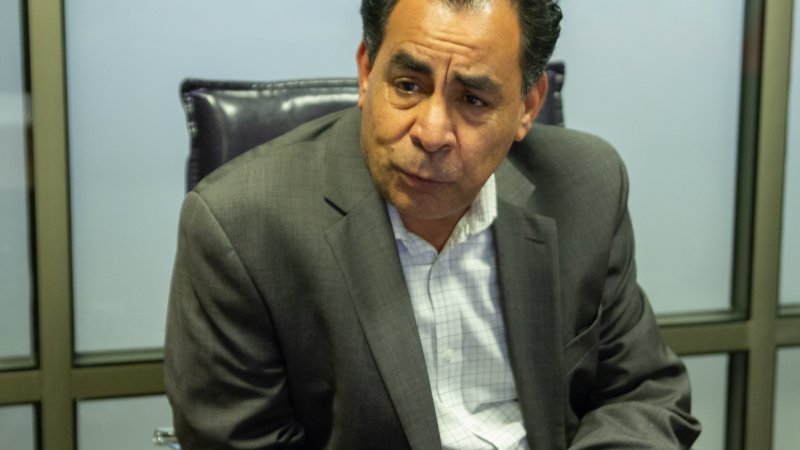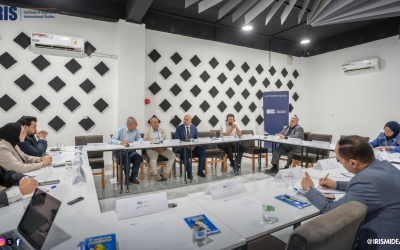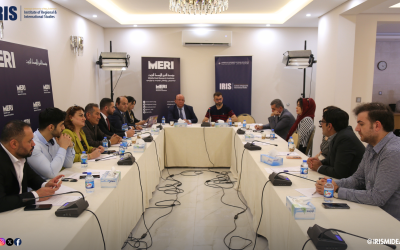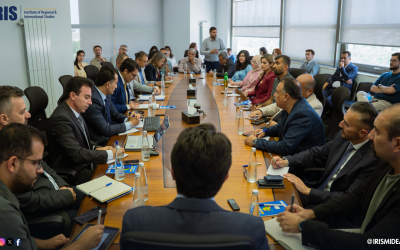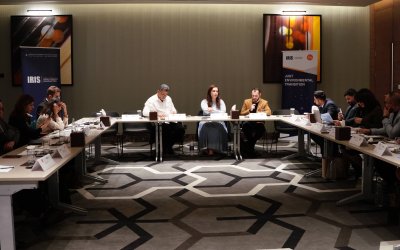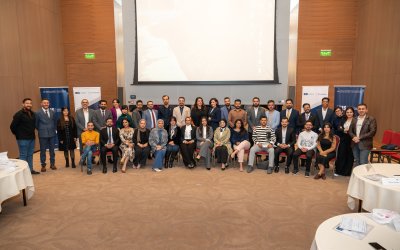On Wednesday, February 13, IRIS hosted Rahman Aljebouri, the current president of the Political Leadership and Governance Development Academy in Baghdad and former Associate Director for the Middle East and North Africa at the National Endowment for Democracy, to teach the first master class of the Peace and Conflict Fellowship. The theme of his masterclass was peace-building and conflict resolution.
Dr. Aljebouri’s class covered specific themes within the context of conflict in Iraq, from state formation and military coups to ethno-sectarianism. It focused on evaluating significant periods of conflict in Iraqi history, from the Iran-Iraq War to more recent insurgencies, such as Al-Qaeda and ISIS. In order to critically reflect on these periods of conflict and subsequent mitigation attempts, fellows challenged previous domestic, international, and multilateral initiatives to resolve conflict and promote reconciliation between various parties.
Dr. Aljebouri began his lecture with a general overview of his life and experience in the midst of significant periods of Iraqi history. He noted that Iraq as a nation was borne out of conflict between major political powers and had since suffered from a variety of ethno-sectarian conflicts, military coups, and armed conflict as a result of internal political, ethnic, and social disputes. He used Kurdish demands for independence, the Iran-Iraq war, and the Kuwait invasion to exemplify the involvement of domestic, regional, and international powers in influencing the outcome of these conflicts. He marked 2003 as a turning point in the development of insurgencies such as Al-Qaeda and ISIS, and encouraged fellows to think critically about potential alternatives to conflict resolution in Iraq.
The lecture inspired the fellows to evaluate post-2003 challenges to sustainable peace in Iraq. The conversation diverged from historical analyses of conflict to reflections on potential resolutions to issues such as post-October 2017 tensions between Baghdad and Erbil, IDP flows, and ongoing militia activity. Fellows questioned post-2003 efforts to de-escalate and resolve conflict, including de-baathification, reconciliation committees, and accountability and justice commissions, and proposed ideas for successful capacity building measures that included support for civil society and robust research initiatives and trainings.

